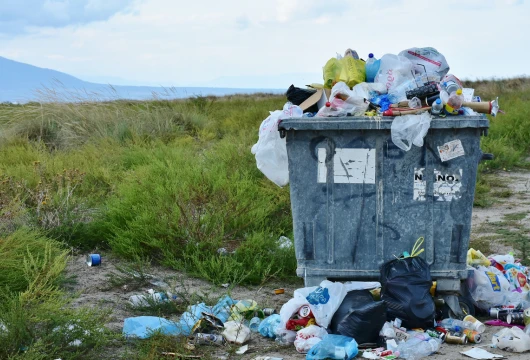In a progressive move towards sustainability and cleaner urban living, the government of Himachal Pradesh has announced the creation of a dedicated *Environmental Cell* within its Department of Urban Development. This landmark initiative, launched on August 19, 2024, aims to address the rising challenges of solid and liquid waste management in the state’s rapidly growing urban centers. By establishing this cell, the government demonstrates its commitment to enhancing waste management strategies and fostering sustainable development in cities across the state.
Empowering Sustainable Waste Management in Himachal’s Urban Centers
Chief Minister Thakur Sukhvinder Singh Sukhu emphasized the importance of this initiative, highlighting the growing pressure faced by the state’s 60 Urban Local Bodies (ULBs). These include five Municipal Corporations, 29 Municipal Councils, and 26 Nagar Panchayats, all responsible for delivering municipal services to a steadily expanding population. As urbanization accelerates, the need for efficient waste management becomes more urgent, and the Environmental Cell will serve as a vital resource for local authorities to meet these challenges head-on.
“Solid and liquid waste management is the biggest challenge urban local bodies face today. Therefore, there will be a dedicated cell to meet these challenges, ensuring cleaner and more sustainable urban environments across Himachal Pradesh,” the Chief Minister stated. This decision reflects the government’s focus on creating sustainable, livable cities, prioritizing environmental stewardship and public health.
A Dedicated Effort Towards Sustainable Waste Management Solutions
At present, waste management tasks are overseen by the project branch of the Directorate of Urban Development. Still, the department needs more technical expertise and a workforce. Creating the Environmental Cell is intended to fill this gap, providing the necessary staffing and resources to tackle waste management issues effectively. This dedicated team will work to implement waste management strategies that align with both national regulations and local needs, ultimately making urban areas more environmentally sustainable.
This move signals a shift toward more structured and efficient waste management processes. The Environmental Cell will focus on waste disposal, minimization, recycling, and public education on sustainability practices. Doing so will contribute to reducing the environmental impact of urban growth while improving the quality of life for residents across Himachal Pradesh.
Addressing Urbanization’s Environmental Challenges
The rapid pace of urbanization in Himachal Pradesh has brought with it numerous challenges, particularly in the realm of waste management. As more people move to urban areas, the volume of solid and liquid waste generated has increased significantly. With proper systems to manage this waste, cities can avoid severe environmental and public health issues.
Improper disposal of waste materials can have far-reaching consequences, including air and water pollution, degradation of natural habitats, and threats to biodiversity. The Chief Minister noted that the impacts of poorly managed waste are not confined to environmental degradation but also extend to public health risks, including the spread of diseases and contamination of drinking water sources. “Effective waste management practices are essential not only to prevent the spread of diseases and protect drinking water but also to maintain air quality and safeguard the overall well-being of the community,” he said.
A Holistic Approach to Urban Sustainability
The Environmental Cell represents a holistic approach to urban sustainability, recognizing that waste management is a multifaceted issue that requires coordination between various stakeholders. This initiative will allow for better collaboration between local authorities, private waste management companies, and the public. In particular, the cell will promote innovative solutions such as waste-to-energy projects, enhanced recycling programs, and the development of eco-friendly waste disposal methods.
Furthermore, the Environmental Cell will work closely with urban planning bodies to ensure that future state development considers the environmental impact of increased waste production. This will involve integrating waste management strategies into the early stages of urban development projects, ensuring that cities are designed with sustainability in mind.
A Step Towards Achieving Himachal’s Environmental Goals
Establishing the Environmental Cell is part of a broader push by the Himachal Pradesh government to improve its environmental performance and work towards achieving its sustainability goals. In recent years, the state has made significant progress in areas such as renewable energy adoption and forest conservation, and the creation of this cell is the latest in a series of initiatives to enhance its environmental sustainability.
By focusing on waste management, the government addresses one of the critical issues affecting the environment and the quality of life in urban areas. The Chief Minister has been evident in his vision of a cleaner, greener Himachal Pradesh, and the Environmental Cell will play a pivotal role in making that vision a reality.
Empowering Local Communities for a Greener Future
One of the most promising aspects of the Environmental Cell is its potential to empower local communities to take an active role in waste management. Public education campaigns to raise awareness about the importance of proper waste disposal, recycling, and sustainable consumption will be vital to the cell’s activities.
Residents will also be encouraged to participate in community-driven waste management initiatives, such as composting programs and neighborhood recycling drives. The government hopes to foster a shared responsibility for maintaining clean and healthy urban environments by involving the public in these efforts.
A Bright Future for Urban Sustainability in Himachal
As Himachal Pradesh continues to grow and urbanize, establishing the Environmental Cell is crucial to ensuring that its cities remain sustainable and livable. By focusing on effective waste management, public health, and environmental preservation, the government is demonstrating its commitment to building a greener future for all.
Through this initiative, the state is setting an example for other regions to follow, showing that with the right policies and dedicated resources, urban growth can be managed to protect both people and the planet.
For more in-depth analysis and inspiring climate news, click here.

